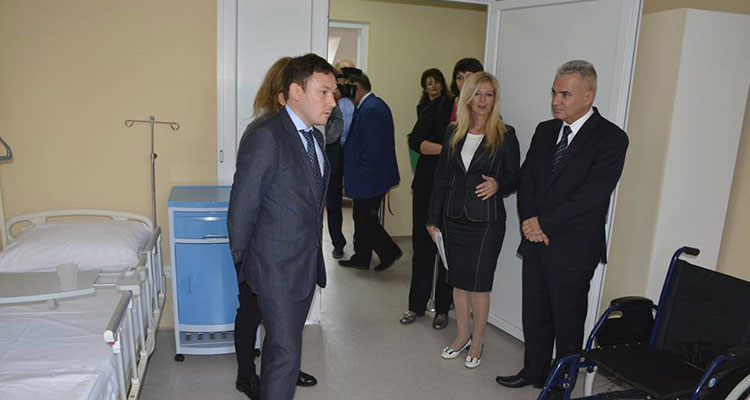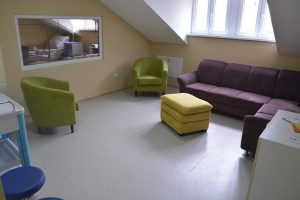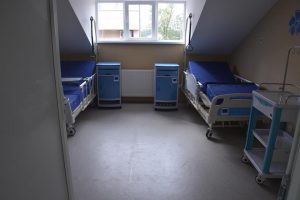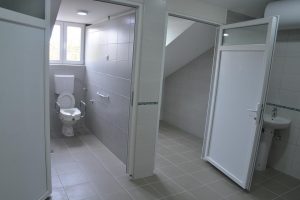Palliative Care Ward has been officially opened within the Gerontology Centre in Kragujevac in the presence of representatives of the EU and Serbian Ministry of Labour, Employment, Veteran and Social Affairs.
The project “Palliative care in the local community” has brought significant benefits to beneficiaries and the local community: a multidisciplinary team has paid over 100 visits to beneficiaries, whereas 78 beneficiaries have been provided with the service (15,840 services in total). Also, 22 beneficiaries have spent a total of 2,156 days in care and were provided with 17,248 services. Accommodation capacity of the Palliative Care Ward within the Gerontology Centre in Kragujevac has been increased and can now accommodate 26 beneficiaries in nearly 500 square metres of floor space, in line with high accommodation and service provision standards.
The EU has invested EUR253,386 in construction of the Palliative Care Ward, whereas the Government of Serbia has allocated EUR115,000 for its adaption.
Sasa Trandafilovic, Assistant Minister of Economy and Finance of the Ministry of Labour, Employment, Veteran and Social Affairs thanked the EU Delegation for its assistance in the project.
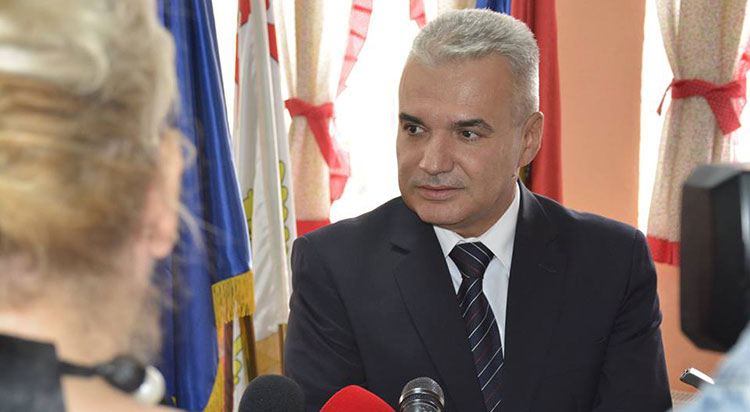 “Providing people suffering from serious and incurable diseases with care and their families with support are of great importance and require the social protection system to develop innovative approaches and services. The project has been implemented by the Gerontology Centre in Kragujevac and association Viktorija to secure the provision of services of palliative, temporary and permanent care at the Centre. It took 18 months to bring the work to an end. The EU will continue to support us in these efforts in the coming period,” Trandafilovic said.
“Providing people suffering from serious and incurable diseases with care and their families with support are of great importance and require the social protection system to develop innovative approaches and services. The project has been implemented by the Gerontology Centre in Kragujevac and association Viktorija to secure the provision of services of palliative, temporary and permanent care at the Centre. It took 18 months to bring the work to an end. The EU will continue to support us in these efforts in the coming period,” Trandafilovic said.
Nicolas Bizel of the EU Delegation to Serbia said that “projects of importance for the local community bear particular importance for the EU.”
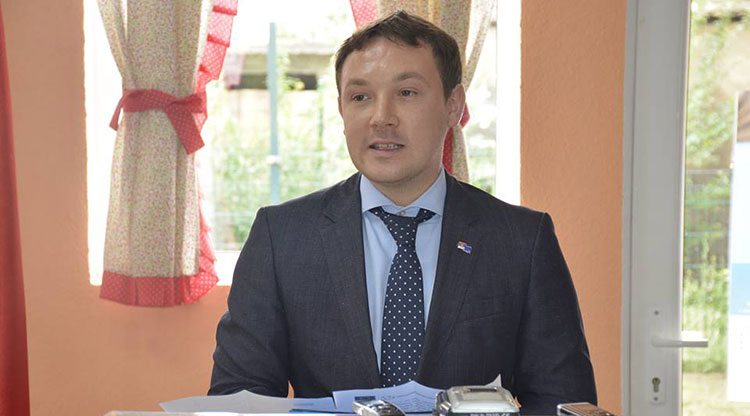 “In the EU, we see the solidarity with vulnerable groups as one of the fundamental values and human rights, which are essential elements of European integration. We will continue to support such initiatives, not only to bring Serbia closer to the EU, but also to bring concrete benefits of the European integration process to citizens,“ Bizel said.
“In the EU, we see the solidarity with vulnerable groups as one of the fundamental values and human rights, which are essential elements of European integration. We will continue to support such initiatives, not only to bring Serbia closer to the EU, but also to bring concrete benefits of the European integration process to citizens,“ Bizel said.
“European support for inclusive society,” a project funded by the European Union with EUR5.4 million, aims to ensure greater social inclusion of vulnerable groups in Serbia such as the elderly, children, minorities, including Roma, and others. The EU has granted EUR4.3 million in the form of 28 grants under the project to be implemented in 36 towns and municipalities across Serbia by the end of 2017. The projects implemented by national and provincial social welfare institutions, towns and municipalities, social welfare centres, citizens’ associations, foundations, educational institutions and public companies will increase the scope and quality of services at the local level in social and health care, housing, education and employment, and thereby strengthen the social inclusion of vulnerable groups.
The project is implemented by the EU Delegation to Serbia in cooperation with the Ministry of Labour, Employment, Veteran and Social Affairs. For more information about the project, visit www.socijalnainkluzija.rs

